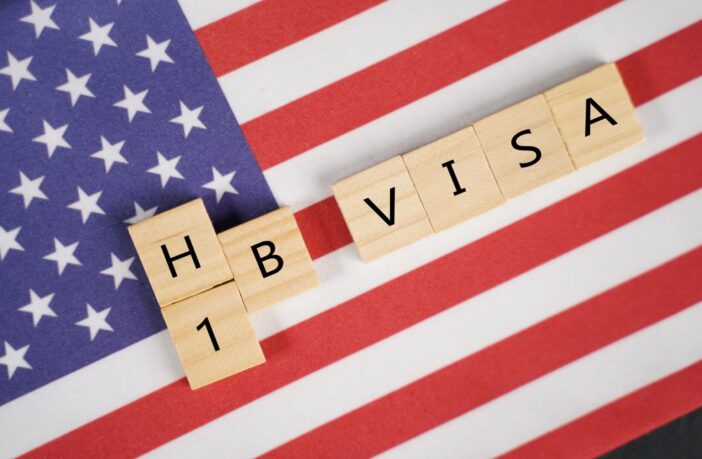Every fiscal year, U.S. Citizenship and Immigration Services (USCIS) allocates up to 85,000 visas for the H-1B nonimmigrant visa program to temporarily fill specialty occupations in the Science, Technology, Engineering, and Math (STEM) fields and other skilled disciplines. Foreign nationals must hold a bachelor’s or master’s degree to be selected. While the H-1B visa program’s proponents tout its supposed importance, this scheme is riddled with issues.
- The H-1B Program Displaces American Workers.
The H-1B program permits employers to legally underpay H-1B workers, making employing these visa recipients cheaper than hiring or retaining American citizens. According to the Economic Policy Institute (EPI), H-1B visa holders earn significantly less than American workers, despite being in identical positions and having similar education and work experience.
The EPI data also show that 60 percent of visa holders are paid well below the median wages in their localities by their sponsoring companies. This forces U.S. workers to compete in a job market that slashes their earning potential and prioritizes hiring foreign labor. In countless cases, labor contractors have fired American STEM employees to cut costs.
- Many H-1B recipients are not highly skilled.
A key intention of the H-1B program is to bring skilled and specialized workers to fill labor gaps in our workforce temporarily. A 2019 report shows that this component has been warped, as “most H-1B workers have no more than ordinary skills, skills that are abundantly available in the US labor market.” Most H-1B visa holders only have bachelor’s degrees, meaning many guestworkers likely have standard professional experience no different from U.S. citizens.
The Center for Immigration Studies (CIS) found that foreign-educated guestworkers are less skilled than their American counterparts in STEM-related skills. CIS’s findings showed foreign nationals who obtained a college or advanced degree outside of the U.S. performed poorly in computer operations, numeracy, and English-language literacy, scoring at the same level as U.S. citizens who only have a high school diploma.
- The selection process for H-1B applicants is not based on merit.
Every April, USCIS begins the H-1B selection process for qualifying applicants. This process is based on a lottery system rather than choosing individuals based on their skill, advanced education, or starting salary. How does selecting foreign workers by mere chance benefit the U.S.? The current lottery scheme harms American workers by bringing in cheap foreign labor, resulting in lower wages for American citizens, and prevents the hiring of actually talented guestworkers.
Solutions to the Problem
One solution would be enacting the American Tech Workforce Act, introduced by Rep. Jim Banks (R-Ind.). The bill would require a wage floor for H-1B applications, requiring employers to pay either $110,000 or a salary that exceeds the annual wage last paid to an American worker (whichever is higher) in the same position. The bill would also create a marketplace where eligible visa applications are based on the highest bidder instead of relying on the current lottery system.
Rep. Banks’ bill would codify the Trump administration’s proposed H-1B rule changes that were announced in 2020. Some of President Trump’s changes include H-1B workers actually possessing unique skills and qualifications to be employed.
President Joe Biden campaigned on reforming temporary guestworker programs to ensure they are wage-based and have proper enforcement measures. The president has also signaled that he supports shifting to a merit-based system for temporary visa programs. What is he waiting for? Unless President Biden expands on his predecessor’s progress on the H-1B program, it will continue to affect American workers negatively.




